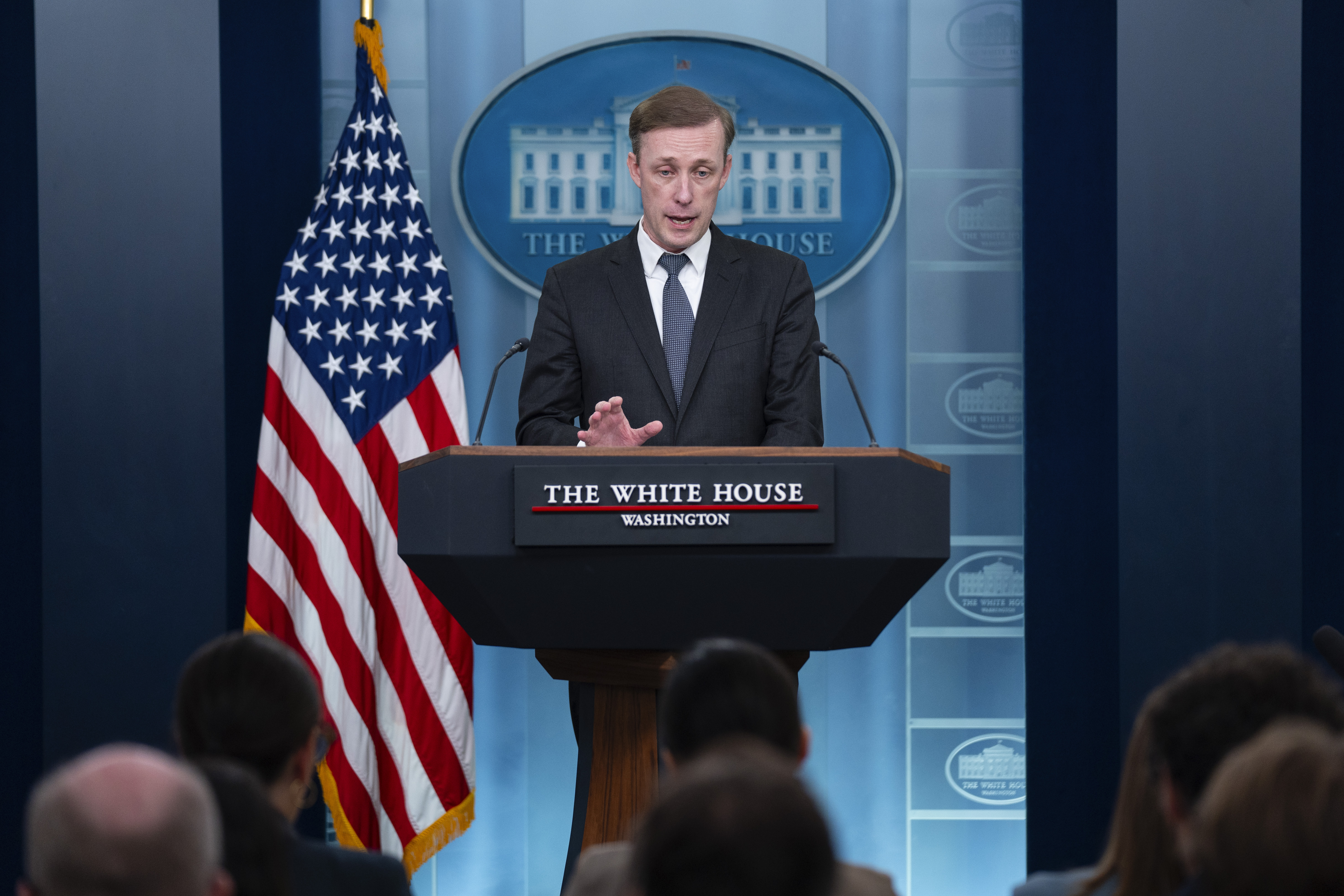
At this week's high-level talks between senior diplomats from China and the United States, Beijing and Washington will "continue to discuss the issue of strategic perception and the boundary between national security and economic activities", the Foreign Ministry said on Sunday.
US National Security Advisor Jake Sullivan will visit China from Tuesday to Thursday for a new round of China-US strategic communication with Foreign Minister Wang Yi, who is also director of the Office of the Foreign Affairs Commission of the Communist Party of China Central Committee.
It will be Sullivan's first visit to China in his current post and will also mark the first visit by a US national security adviser to China in eight years.
The trip will mark an important step for the two sides to carry out the consensus of the San Francisco summit last year, and both sides have displayed a strong desire to keep communication afloat despite various challenges, analysts said.
Wang will have an in-depth exchange of views with Sullivan "on China-US ties, sensitive issues and major international and regional hot spot issues", a leading official from the Foreign Ministry's Department of North American and Oceanian Affairs said on Sunday.
ALSO READ: US National Security Advisor Sullivan to visit China over Aug 27-29
The two sides will take stock of the progress made by the two countries in implementing the consensus reached at the San Francisco summit, and give full play to the more than 20 dialogue and communication mechanisms that have been established or resumed.
China will focus on expressing serious concerns, stating its position and making serious demands on matters "such as the Taiwan question, its right to seek development and China's strategic security", the official said at a news briefing.
Following the San Francisco summit, the two sides' diplomatic, financial, law enforcement and climate change working teams, as well as the two militaries, have maintained communication.
Meanwhile, as the US continues its containment and suppression of China, Beijing has taken resolute countermeasures, and China-US ties are still at a critical juncture of stabilizing, the official said.
The strategic communications between Wang and Sullivan are part of the consensus reached by President Xi Jinping and US President Joe Biden in Bali, Indonesia, in 2022.
Previously, Wang and Sullivan had three rounds of strategic communications in Vienna, Malta and Bangkok.
Those meetings "were substantive and constructive, and achieved positive results", and "both sides agreed to further make good use of this channel of strategic communication", the Foreign Ministry official said.
Su Xiaohui, deputy director of the China Institute of International Studies' Department of American Studies, said, "Sullivan's visit showcases the great importance attached by the Biden administration to ties with China, and the two sides share a readiness to further roll out the San Francisco Vision.
"In the meantime, China is using the communication to further shape the bilateral ties in an active way, and it does not shy away from addressing existing issues and challenges, including the US perception of China," she added.
ALSO READ: For US, relationship a zero-sum game
On the overall China-US relations, the ministry official said that Beijing has always believed that "the competition between major countries does not solve the problems faced by the US and the world".
The three principles of mutual respect, peaceful coexistence and win-win cooperation as put forward by President Xi "should be the direction of joint efforts by China and the US", the official said.
Regarding the situation in the Taiwan Strait, the official said the US should strictly observe the one-China principle and the provisions of the three landmark China-US joint communiques, and carry out its commitment to not supporting "Taiwan independence".
Speaking on the US' continued unreasonable measures against China in terms of tariffs, export controls and unilateral sanctions, the official said that China urges the US to "stop politicizing and securitizing economic and trade issues" and "take more measures to facilitate people-to-people exchanges between the two countries".
China will also call for the US to fulfill its responsibility as a permanent member of the United Nations Security Council and "play a constructive role in the political settlement of current major and prominent international and regional issues", the official added.



